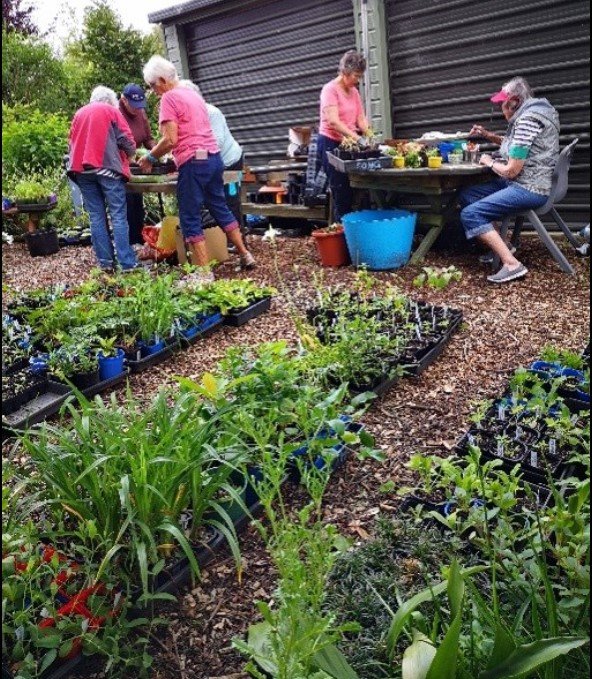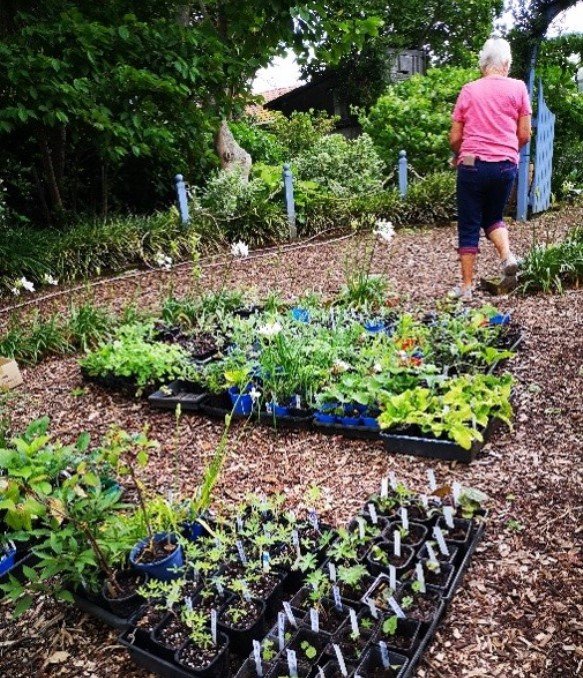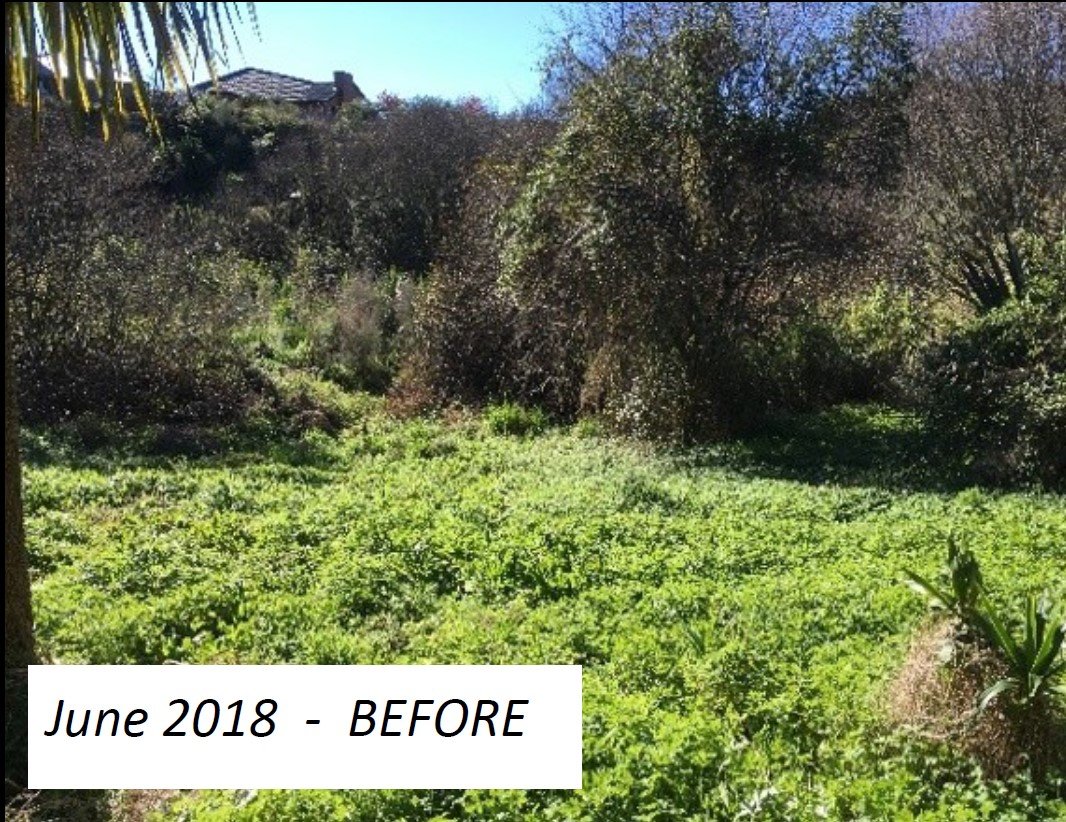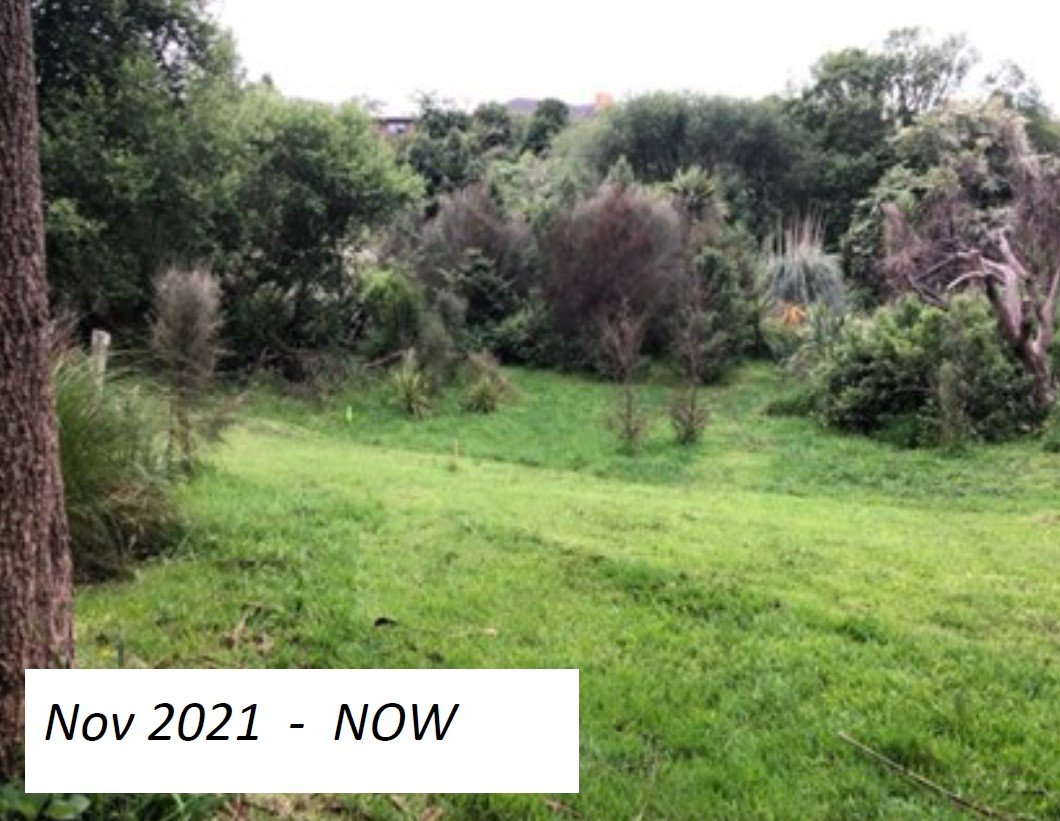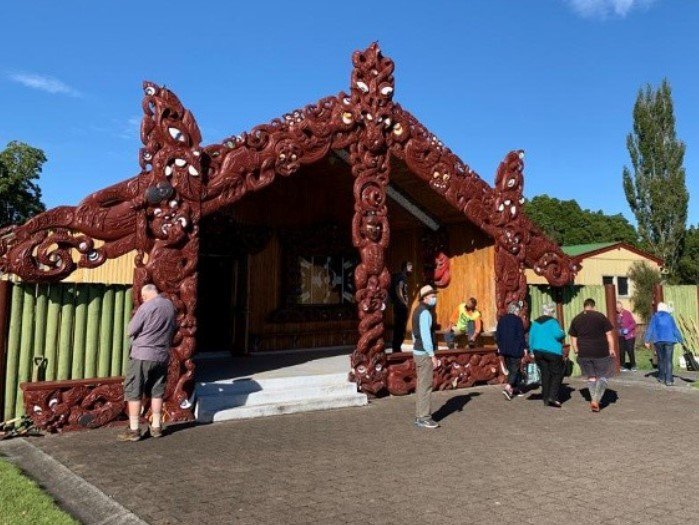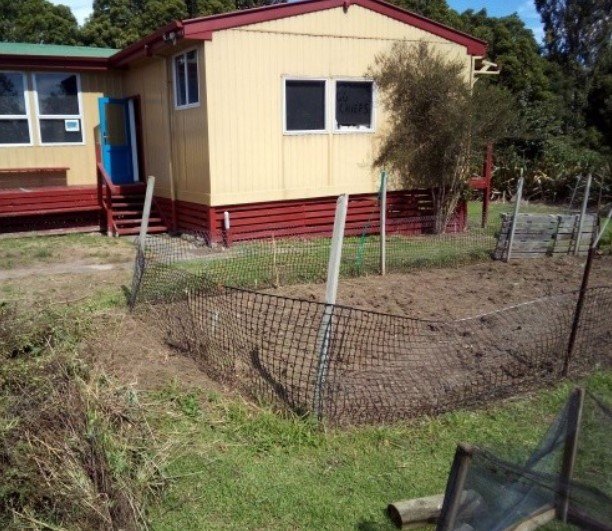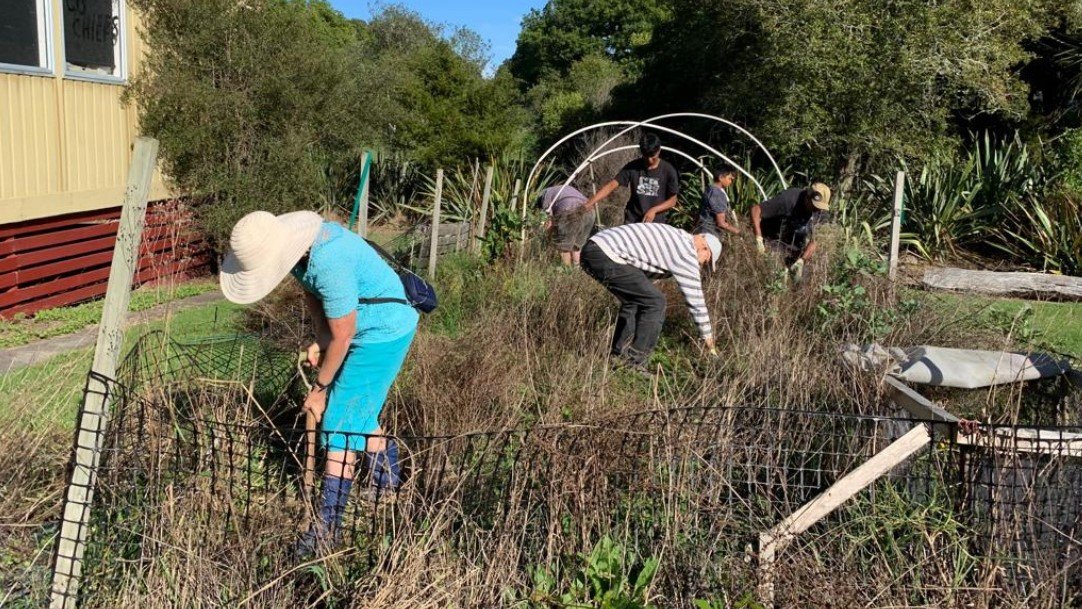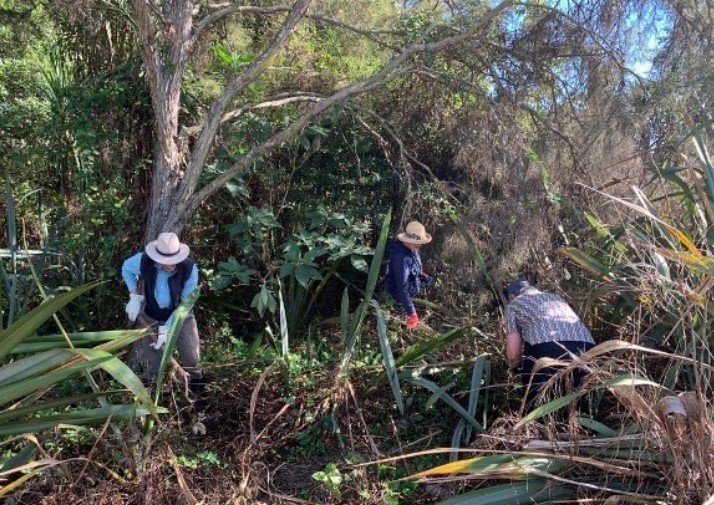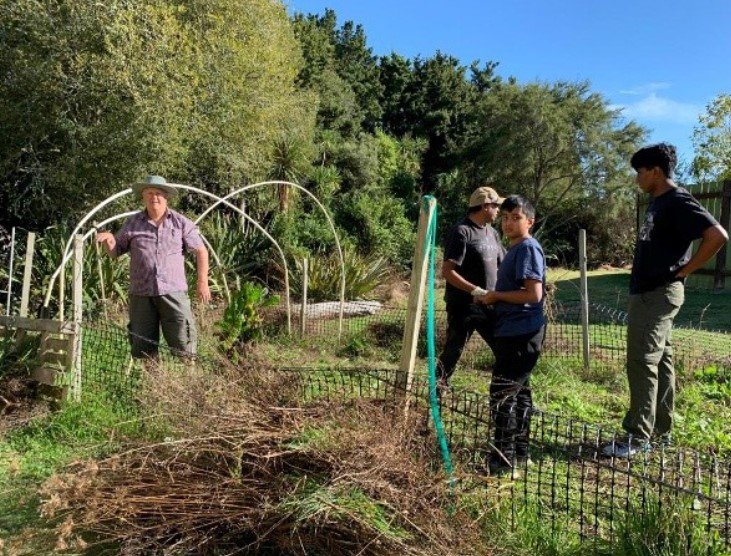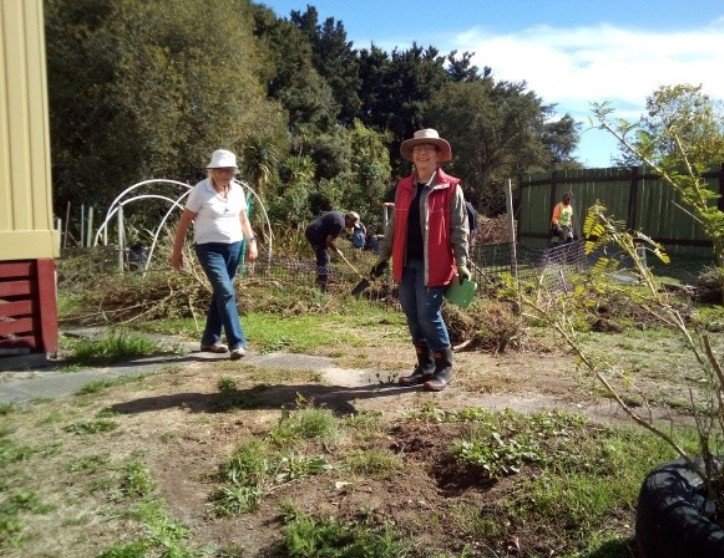Chartwell Cooperating Church’s sustainability initiatives
Collated from Chartwell Cooperating Church’s Charter magazine - as snapshots of some of the creation care and sustainability initiatives happening at their church.
Chartwell Cooperating Church is a seasoned traveller on the sustainability journey and as shown from the excerpts below - already has so many stories to share with the Eco Church network.
Chartwell Church’s Annual Fair
(Adapted from Erica Harris’ contribution, Charter magazine Dec 2021-Jan 2022)
The Chartwell Church’s Annual Fair is a social service that provides tidy goods at very reasonable prices to the economically disadvantaged in our city. It is eagerly anticipated and provides a wonderful opportunity to connect with the wider community and to strengthen relationships within our faith community.
The Fair also has an environmental focus by lessening the load on our planet by extending the lifespan of goods that would often go to landfill. The locally-grown plants and vegetable seedlings on the Plant Stall mean that people are lessening the travel miles associated with their purchases.
Chartwell Church’s Mission Table
(Adapted from Carol Webb’s contribution, Charter magazine Dec 2021-Jan 2022)
It all started years decades ago when a member of the congregation began the mission table so that members with a surplus of produce could share with other members of the congregation after the Sunday service. Before long it was felt that we could share not only with fellow members, but also with others beyond us who had greater needs and so the idea of the Mission Table was developed. Members of the congregation who enjoyed the surplus produce, cut flowers and plants from the Mission Table offered a voluntary koha to help raise funds for particular mission projects elsewhere.
Over the years gifts have been made to mission work in many locations, including an Anglican school in Tonga and another in Fiji, a school and hospital supported by Methodists in Solomon Islands and, the building of a preschool for the Presbyterian Church of Vanuatu. More recently donations have been made to CWS for refugees and those suffering the effect of COVID-19.
Today, thanks to the contributions of produce, cut flowers, plants and seedlings, and the koha collected from the Mission Table, we are able to widely share our excess produce as well as raise money for mission support. Unsold produce from our mission table each week is placed in the Pātaka Kai for the benefit of the local community.
Kidz Korner Toy Library
(Adapted from Amie Matthews-Whenuaroa’s contribution, Charter magazine Dec 2021-Jan 2022)
A Toy Library is a place where parents or carers can come to borrow a large variety of quality toys, puzzles and games on a regular basis. It’s basically like having an (almost) free shop where you can just borrow whatever toys you like, play with them and then bring them back and start over. It’s like Christmas every two weeks!
Quality toys can be expensive; children quickly become bored with a toy once its play value has been exhausted. By providing new play materials every week or two, parents can save money and significantly contribute towards the development and education of their children. In an age of low waste intentions and limited budgets, it’s a way to reduce landfill waste from discarded toys and packaging.
For less than $8 a month families can access toys that they otherwise might not be able to afford or would purchase an inferior version that ends up in landfill due to their short lifespan.
When toys are no longer suitable for loaning, they are sold either at the yearly toy sale or used as spare parts for toy repairs and replacement. Packaging and storage containers are reused and recycled when no longer fit for use. Nothing goes to waste at Kidz Korner Toy Library.
We are hoping to get funding for a selection of sustainable toys in the next 12 months. These are toys made from recycled materials and sustainable products.
Solar Panels
(Adapted from Warwick Silvester and Jack Brinkman’s contribution, Charter magazine Dec 2021-Jan 2022)
It was an exceptionally generous offer from Jack Brinkman that got us started.
“We need to go solar”, he said, “we need to show we understand the need to be carbon neutral, and we need to be seen to be a responsive community”.
As part of our commitment to sustainability, we have undertaken to further investigate the installation solar panels on the church roof. A solar array on the north facing façade of the church would show a strong message. There are limitations to being off the grid entirely as we use 2,000 - 3,000 kWh/ month in the three winter months, but certainly we could cover much of the power usage for the rest of the year. We are investigating prices, subsidies and are even wondering if a joint advertising statement from a supplier might soften the capital cost. We could save $5,000 - $6,000 per year while also feeding solar energy back into the grid.
The proposal is to install up to 40 solar panels, giving us about 15kW of power. We have drawn up a document requesting quotations from providers which will be going to four suppliers. We anticipate the cost to be around $35,000 and we should budget for $40,000. An array of this size will significantly reduce our power costs but also help us to realise a more sustainable profile. We are not yet committed but we will reassess when we receive quotations.
Read this story for an update on the solar panel installation.
Fair Trade at Chartwell Church
(Adapted from Heather Kikkert’s contribution, Charter magazine Dec 2021-Jan 2022)
In 2021, following direction from the Chartwell Church Strategic Plan to be "serving and transforming", we have moved to purchasing Fair Trade tea, coffee (instant and plunger), and sugar for our church facility. While this does cost more, it can be considered as supporting an overseas mission that enables people to support their families, plus we can follow Jesus' teaching to love our (international) neighbours as ourselves.
Queenwood Fellowship and the Plant Stall
(Adapted from Judy Holdsworth’s contribution, Charter magazine Dec 2021-Jan 2022)
A small group of women from Queenwood Fellowship meet regularly to prepare plants for the church annual fair. We sow seeds – some saved by us and some commercial – take cuttings, and divide plants all to make healthy plants ready for the Fair. We grow vegetables, annuals, perennials, succulents, small shrubs and some natives. In 2021, Chartwell Church organised a click and collect plant sale and made $4,000. We enjoy our time together and it is rewarding to be able to utilise plants from seeds and small cuttings and seedlings to raise funds for Chartwell Church and to be able to help in the community.
Pātaka Kai
(Adapted from Anna Casey-Cox and Heather Kikkert’s contribution, Charter magazine Dec 2021-Jan 2022)
The Chartwell Church Pātaka Kai (community food pantry) is located on Bellmont Ave and is part of the many ways Chartwell Church reaches out and connects with the community. Church members contribute with kai, seedlings and Go Eco (previously known as the Waikato Environment Centre) supports, when possible, with the provision of rescued food. Pātaka kai are located all over Kirikiriroa Hamilton and are part of the Te Puna Kai o Waikato network, supported by Go Eco and Hamilton City Council.
In September 2021, a group of Rototuna High School students contacted the church with their hopes to start and/or support a Pātaka Kai as part of a school project. After a number of discussions and approval by the Parish Council, the students will be adding an extension to the church’s current Pātaka Kai and 'adopting' it. The students plan to paint the pantry so it will show the name they've chosen: Mix 'n' Meal. This name reflects their plan to share recipes as well as food. It is good to have others in our community pick up some of the responsibility for the pantry. We’re looking forward to these exciting new changes!
Pukemokemoke Bush Reserve
(Adapted by Warwick Silvester’s contribution, Charter magazine Dec 2021-Jan 2022)
At least a dozen parishioners have been involved in the development of the Pukemokemoke Bush Reserve at Tauhei, a 40-hectare patch of lowland bush donated by David Johnstone. The reserve, previously part of Orini Downs Station, was gifted to the nation by David Johnstone who was one of the major shareholders in the Station. The reserve, which has a conservation covenant placed on it, is now under the control of the David Johnstone Pukemokemoke Bush Trust. It was set up specifically to protect the bush and provide a recreational and educational asset for the community.
Over the past 23 years, the run-down animal and weed infested remnant has been restored. Intensive weed and predator control has been followed by the planting of over 8000 native plants. A gazebo and picnic shelter have been erected and over 500m of raised wooden walkway established to protect the kauri remnant from dieback disease.
Enjoying the return of so much bird life has been a major bonus of the work out there, which has been enjoyed by many from the parish, both on working bees and walks. Pukemokemoke Bush Reserve now stands as an outstanding example of lowland native forest.
Light Bulb Brigade and Repair Café
(Adapted from Jock Crawford’s contribution, Charter magazine Dec 2021-Jan 2022)
For some years Chartwell Church members have been interested in fixing and repairing stuff and restoring its usefulness. The Light Bulb Brigade (LBB) was formed and a collection of new hand tools was paid for by a local charity to develop the concept. The catalyst was a bill for around $130 to change a light bulb, presented to one of our parishioners by a local tradesman. Since that time the LBB has visited quite a few parishioners’ homes to change bulbs, fix leaking taps, replace door locks, fix sliding doors, shower heads and so on and have had their efforts appreciated.
We are fortunate to have several people who have some particular skills and experience but increasingly onerous Health and Safety regulations nowadays curtail work that we are quite able to perform but are no longer able to do so lawfully. This is particularly so with regard to fixing electrical appliances and such.
Those of us who have been involved with the Light Bulb Brigade have been impressed with the growth and interest shown in the Repair Café movement which is gaining strength throughout Australia and New Zealand and also Europe. Many readers will have been watching the TV Repair Café programme and can understand its popularity. Although we cannot hope to match the skills shown on that programme, nevertheless, we can muster some useful abilities at our Chartwell Repair Café, open for business in the afternoon of the first Saturday of each month in the hall foyer.
In addition to sharpening tools, repairing toys and mechanical oddities, repairing a number of old and valued books from children’s treasures to more significant 19th Century volumes in a terrible state, there are scones and general natter at the times we are open. It will be interesting what developing demand there may be for the skills on offer and who may become involved.
Gully Youth Restoration Group
(Contributed by Emily Cox, Charter magazine Dec 2021-Jan 2022)
Kia ora! At the beginning of the year, I started a volunteer youth restoration group down in the Mangaiti gully. My passion for nature and my fascination with wildlife led me to the local gullies.
I loved to be down amongst nature once every week and knew that rehabilitating natural areas around New Zealand, even in cities, would help the climate. I wasn't aware of any other local youth restoration groups so, with a couple of friends, I started my own.
My group meets at the gully every Sunday for 1.5 to 2 hours. We plant plenty of trees, free the existing ones from weeds like honeysuckle and jump back terrified whenever some huge bug lands on one of our shoulders. We always make sure to have a good time and welcome anyone who's interested in coming along.
Roadside Warrior
(Contributed by Becky O’Leary, Charter magazine Dec 2021-Jan 2022)
When I was little, we were driving down the road near where we live, and mum saw a mother duck and her ducklings by the drain. She stopped in the next driveway and we walked back to see them. Mum had told me about not littering and how it was bad for the environment and the local wildlife. When we were walking to see the ducklings, I saw lots of rubbish and was worried about the ducklings, so mum got a bag from the car and we picked up all the rubbish near them. As well as ducks we often see pukeko, pheasants, hawks and turkeys on the side of the road near our house. Since then, every time we go for a walk, we take a big black rubbish bag. We walk until it’s about half full and then turn around and walk back the other side so it's full when we get home. One time it got too heavy for mum, and she called dad to come get us and the rubbish bag! I can't believe how many people think it's okay to throw out rubbish on the side of the road! Please everyone, keep your rubbish in your car till you get home and recycle it if you can, so our wildlife can be safe.
Working Bee at Aratiatia Marae
(Adapted from Charter magazine, April-May 2022)
A group at Chartwell Cooperating Church have been talking over recent months about how we can become more intentional in showing our care for the environment. We want to be a church which looks outward to our surrounding community and engages with the needs and opportunities there. We also want to explore our bi-cultural relationship with tangata whenua. Our care of the environment includes standing alongside tangata whenua, learning from them and working for justice and restoration of the land together.
At the end of 2021, a small group of us had an initial conversation with leaders from Aratiatia marae which is at Fairfield College who are part of our local iwi, Ngāti Wairere. Following that conversation, the invitation came from Ngāti Wairere to come to a working bee at the marae as part of our relationship-building. On Saturday 26 March 2022, around a dozen people from Chartwell Cooperating Church gathered at Fairfield College and we were welcomed onto the marae by Eddie Neha, a leader of the marae and Richard Crawford who is Principal of Fairfield College and a member of the marae committee.
After the formal welcome, assisted by Rev Cruz Karauti-Fox, the Waikato Missioner for the Anglican Diocese, we were given an introduction to the story of the marae and an explanation of the carvings on the interior of the wharenui which tell a wonderful story of not only Ngāti Wairere, but also of the intention for the marae to be a place where all people, from all races and places, can feel they belong. After a delicious morning tea, we got stuck in to weeding the māra kai (food garden) and the ngāhere (forest). The usual working bees and maintenance had not been able to be done for some time due to COVID-19. Good progress was made which was hugely satisfying. After sharing lunch together, we all headed off for home feeling that it had been an excellent start to building what we hope will be a mutually enriching relationship with our local iwi.
Lenten Studies – God’s Earth, Our Home
(Adapted from Charter magazine, Feb-Mar 2022)
For this year Lenten studies, Rev Jekheli led a study called God’s Earth, Our Home. The study is based on Archbishop Rowan Williams’ 2005 lectures on his belief of how we are called to live in God’s Earth. This updated and redesigned resource was put together by Anglican Social Justice Unit for Earth Day’s 50th anniversary in April 2020. It is designed to help us explore how we can live, love and redeem the God-created world around us. The five sessions were on:
· Oikos; The House we Live in
· Fully Human; Technology our Saviour?
· The Jubilee
· All Consuming; Justice for the Earth
· Commonwealth; Wealth and Sharing Resources



